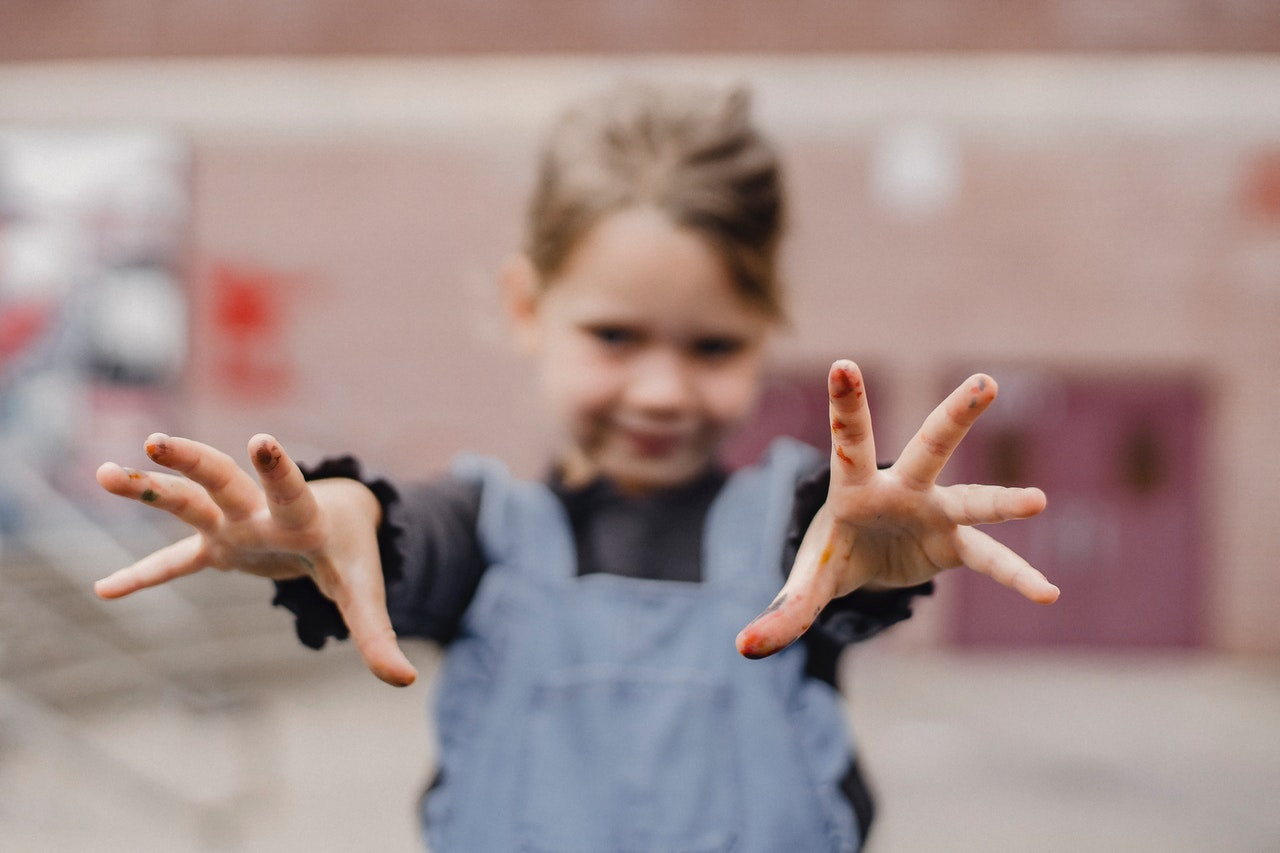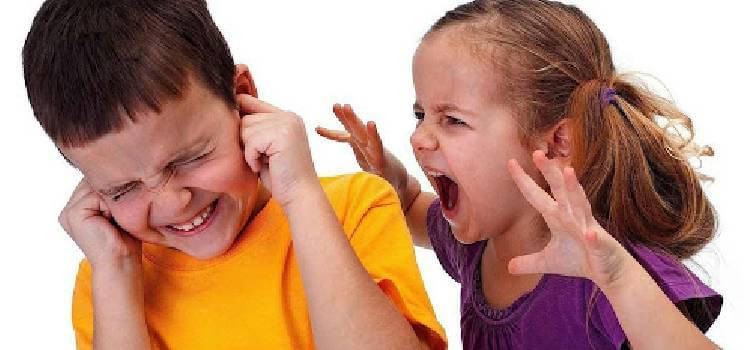Definisi
Depresi merupakan gangguan mood yang didefinisikan sebagai perasaan sedih, cemas, atau kehilangan gairah yang dapat menganggu aktivitas sehari-hari. Dewasa ini, peningkatan kesadaran terhadap kesehatan mental terus digalakan, salah satunya tentang depresi pada orang dewasa. Namun nyatanya, tidak hanya orang dewasa yang dapat mengalami depresi. Diketahui bahwa depresi juga dapat terjadi pada anak.
Anak yang terlihat sedih belum tentu sedang mengalami depresi. Namun, jika rasa sedih yang dirasakan oleh anak terjadi terus menerus hingga memengaruhi berbagai aspek kehidupannya, seperti pergaulan di lingkungan dan di keluarga, hobi, hingga kegiatan di sekolah, hal ini bisa jadi disebabkan karena anak mengalami depresi.
Penelitian menunjukan bahwa anak yang mengalami depresi cenderung akan mengalami episode depresi kembali ketika anak tumbuh dewasa. Lebih lanjut, anak dengan depresi yang tidak ditangani dengan baik akan menyebabkan terjadinya gangguan kesehatan mental yang lebih serius dikemudian hari. Penegakan diagnosis dan monitoring terhadap anak dengan depresi menjadi hal krusial yang harus dilakukan.
Sebagai orang tua, Anda mungkin menyangkal bahwa anak Anda mengalami depresi. Anda mungkin memilih untuk tidak mencari pertolongan untuk mengatasi masalah pada anak Anda karena stigma buruk terhadap depresi di masyarakat. Namun, depresi pada anak dapat memengaruhi perkembangan anak sehingga penanganan yang tepat sangat dibutuhkan. Perlu diingat, depresi bukanlah sebuah kondisi yang akan menghilang tanpa perawatan yang tepat. Penanganan yang tepat sangat penting dilakukan agar anak Anda dapat tumbuh dengan baik secara fisik maupun emosional.
Penyebab
Serupa dengan depresi yang terjadi pada orang dewasa, depresi pada anak juga disebabkan oleh berbagai kombinasi hal yang berkaitan dengan kesehatan fisik, kejadian dalam kehidupan, riwayat pada keluarga, lingkungan, genetik, dan ketidakseimbangan hormon serta zat biokimia di otak.
Faktor Risiko
Terdapat beberapa faktor yang dapat meningkatkan risiko anak untuk mengalami depresi, yaitu:
- Anak yang memiliki keluarga dengan riwayat depresi berisiko lebih tinggi mengalami depresi atau gangguan kesehatan mental lain
- Anak yang memiliki keluarga yang kacau atau konflik
- Anak dan remaja yang menyalahgunakan zat seperti alkohol dan obat-obatan
- Adanya bullying, kekerasan fisik, emosional, atau seksual
Sebagai contoh, anak Anda mungkin memiliki kecenderungan mengalami depresi secara genetik dan mengalami kejadian sulit di hidupnya (kehilangan orang yang disayang, bullying, dan lain-lain) sebagai faktor risiko. Kombinasi kedua hal ini kemudian dapat menyebabkan anak mengalami depresi.
Gejala
Gejala depresi yang muncul pada anak dapat bervariasi. Kondisi depresi pada anak cenderung tidak terdiagnosa dan tidak mendapatkan penanganan yang tepat karena gejala dianggap sebagai perubahan emosional dan psikologis yang normal terjadi pada anak. Beberapa gejala pada anak dengan depresi dapat berupa:
- Rasa marah atau mudah tersinggung
- Merasa putus asa dan merasa sedih yang terjadi secara terus-menerus
- Menjadi lebih sensitif terhadap penolakan
- Penarikan diri dari sosial atau lingkungan
- Perubahan napsu makan, dapat berupa peningkatan atau penurunan napsu makan
- Perubahan pola tidur, dapat berupa tidur terlalu banyak atau tidak dapat tidur
- Menangis atau berteriak
- Kesulitan untuk berkonsentrasi dan berpikir
- Merasa kelelahan dan cenderung tidak bersemangat
- Mengeluhkan adanya gangguan pada tubuh, seperti sakit perut dan sakit kepala tidak hilang meski sudah diberi obat
- Mengalami kesulitan dalam beraktivitas di rumah atau dengan teman di sekolah, saat sedang melakukan kegiatan ekstrakulikuler, hobi, dan hal-hal lain yang sebelumnya dianggap menarik oleh anak
- Adanya perasaan tidak berharga atau perasaan bersalah
- Adanya pikiran atau ide-ide untuk mengakhiri hidup atau bunuh diri
Diagnosis
Jika gejala depresi pada anak Anda terjadi selama 2 minggu atau lebih, segera pergi ke dokter untuk memastikan apakah hal tersebut merupakan gejala depresi atau bukan. Semakin cepat depresi pada anak ditangani, semakin baik hasilnya.
Pada saat proses pemeriksaan, dokter akan melakukan evaluasi kesehatan mental berupa wawancara dengan anak Anda dan pada Anda atau orang yang mengurus anak Anda. Dokter dapat melakukan pemeriksaan lebih lanjut dengan melakukan serangkaian tes psikologi pada anak Anda. Informasi dari guru, teman bermain dan teman di sekolah anak Anda dapat bermanfaat bagi dokter untuk menegakan diagnosis.
Hingga saat ini, belum terdapat pemerikaan medis atau tes psikologi yang dapat menunjukan depresi secara jelas. Namun, penggunaan alat pemeriksaan seperti kuesioner yang akan diisi oleh anak dan orangtua serta informasi personal, dapat dikombinasikan dan sangat berguna untuk membantu menegakan diagnosis. Tidak jarang, sesi terapi dan kuesioner tersebut juga dapat berguna untuk menemukan terjadinya penyakit lain yang berkontribusi terhadap terjadinya depresi pada anak, seperti ADHD, gangguan penyesuaian, dan OCD.
Tata laksana
Pilihan tata laksana depresi pada anak serupa dengan tata laksana yang dilakukan pada orang dewasa, yaitu psikoterapi atau konseling dan medikasi dengan menggunakan obat.
Selain psikoterapi, dokter Anda mungkin menyarankan untuk dilakukan CBT atau cognitive behavioral therapy. CBT merupakan sebuah bentuk terapi yang digunakan untuk menatalaksana depresi, terutama pada anak yang berusia lebih dewasa. CBT membantu anak untuk mengubah pikiran negatif menjadi lebih positif, mengubah jalan berpikir anak menjadi lebih efektif, dan mengarahkan anak pada perilaku yang lebih baik.
Dokter mungkin menyarankan psikoterapi atau CBT terlebih dahulu dan kemudian akan mempertimbangkan pemberian obat antidepresan jika tidak terdapat perubahan yang signifikan setelah dilakukan psikoterapi atau CBT. Kombinasi psikoterapi atau CBT dan obat antidepresan merupakan tata laksana yang paling efektif.
Perlu diingat bahwa pemberian obat antidepresan harus dilakukan dibawah pengawasan dokter. Hal ini dikarenakan penggunaan obat antidepresan dapat menyebabkan terjadinya peningkatan pikiran untuk bunuh diri.
Komplikasi
Anak dengan depresi memiliki kecenderuangan untuk mengalami episode depresi kembali saat tumbuh dewasa. Lebih lanjut, anak dengan depresi memiliki kecenderungan untuk menggunakan zat terlarang, penyalahgunaan alkohol, hingga perilaku ingin bunuh diri atau mencoba bunuh diri.
Berdasarkan penelitian terbaru, diketahui bawah bunuh diri merupakan penyebab kematian nomor ketiga terbanyak pada anak berusia 5 hingga 14 tahun.
Pencegahan
Anak cenderung mengekspresikan diri melalui permainan dan kata-kata. Habiskan waktu lebih banyak dengan anak Anda, Anda akan mengetahui tentang perasaan anak Anda. Dapat bercerita dengan seseorang selain orangtua sangat membantu anak merasa mendapatkan dukungan. Nenek, kakek, paman, bibi, guru, atau bahkan konselor dapat memberikan dukungan dengan cara mendengarkan cerita dan keluh-kesah serta dukungan pada anak Anda.
Mengubah gaya hidup menjadi lebih sehat juga dapat membantu untuk mencegah terjadinya depresi pada Anak. Mengonsumsi buah-buahan, sayuran, makanan kaya protein, melakukan aktivitas fisik minimal 60 menit setiap hari, tidur yang cukup, dan melaksanakan teknik relaksasi dan mindfulness merupakan beberapa contoh gaya hidup sehat yang dapat dilakukan guna mencegah terjadinya depresi pada Anak.
Kapan Harus Ke Dokter?
Jika gejala depresi pada anak Anda terjadi selama 2 minggu atau lebih, segera pergi ke dokter untuk memastikan apakah hal tersebut merupakan gejala depresi atau bukan. Perhatikan jika anak Anda memiliki gejala yang mengarah pada kecenderungan untuk melakukan bunuh diri, seperti:
- Memiliki banyak gejala depresi (seperti perubahan pola makan, pola tidur, dan perubahan pada aktivitas sehari-hari)
- Terisolasi secara sosial, termasuk dari keluarga
- Membicarakan tentang bunuh diri, kematian, keputusasaan, dan ketidakberdayaan
- Cenderung melakukan hal-hal berisiko
- Sering mengalami kecelakaan
- Menggunakan zat terlarang
- Sering menangis atau mengalami penurunan ekspresi emosional
Segera bawa ke dokter. Jika Anda mencurigai anak Anda mengalami depresi, luangkan waktu Anda sejenak untuk mendengarkan isi hati mereka. Penting untuk tetap menjaga komunikasi terbuka dengan anak Anda, meskipun anak Anda mungkin terlihat ingin menarik diri. Dengarkan dengan baik cerita anak Anda dan hindari untuk memerintahkan pada anak hal yang harus ia lakukan.
Jika Anda merasa kesulitan untuk menjangkau anak Anda atau kondisi anak Anda menjadi semakin mengkhawatirkan, segera kunjungi dokter Anda.
- dr Nadia Opmalina
NHS.uk. (2019, 19 Juli). Talking to your child about feelings - NHS. Diakses pada 9 Februari 2022, dari https://www.nhs.uk/mental-health/children-and-young-adults/advice-for-parents/talk-to-children-about-feelings/
CDC.gov. (2021, 22 Maret). Anxiety and Depression in Children | CDC. Diakses pada 9 Februari 2022, dari https://www.cdc.gov/childrensmentalhealth/depression.html
Webmd.com. (2021, 23 Februari). Depression in Children: Symptoms and Common Types of Child Depression. Diakses pada 9 Februari 2022, dari https://www.webmd.com/depression/guide/depression-children
Healthline.com. (2019, 21 Februari). Childhood Depression:Symptoms, Causes, Treatment & More. Diakses pada 9 Februari 2022, dari https://www.healthline.com/health/mental-health/childhood-depression











